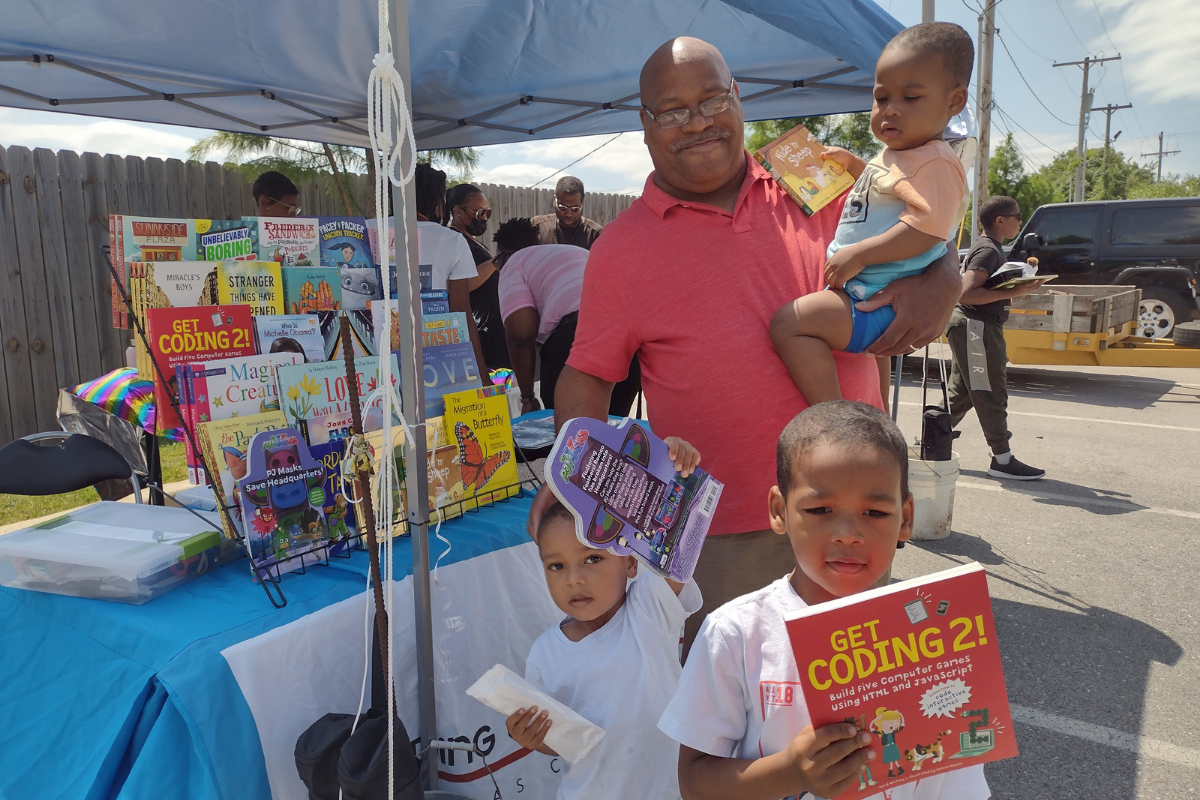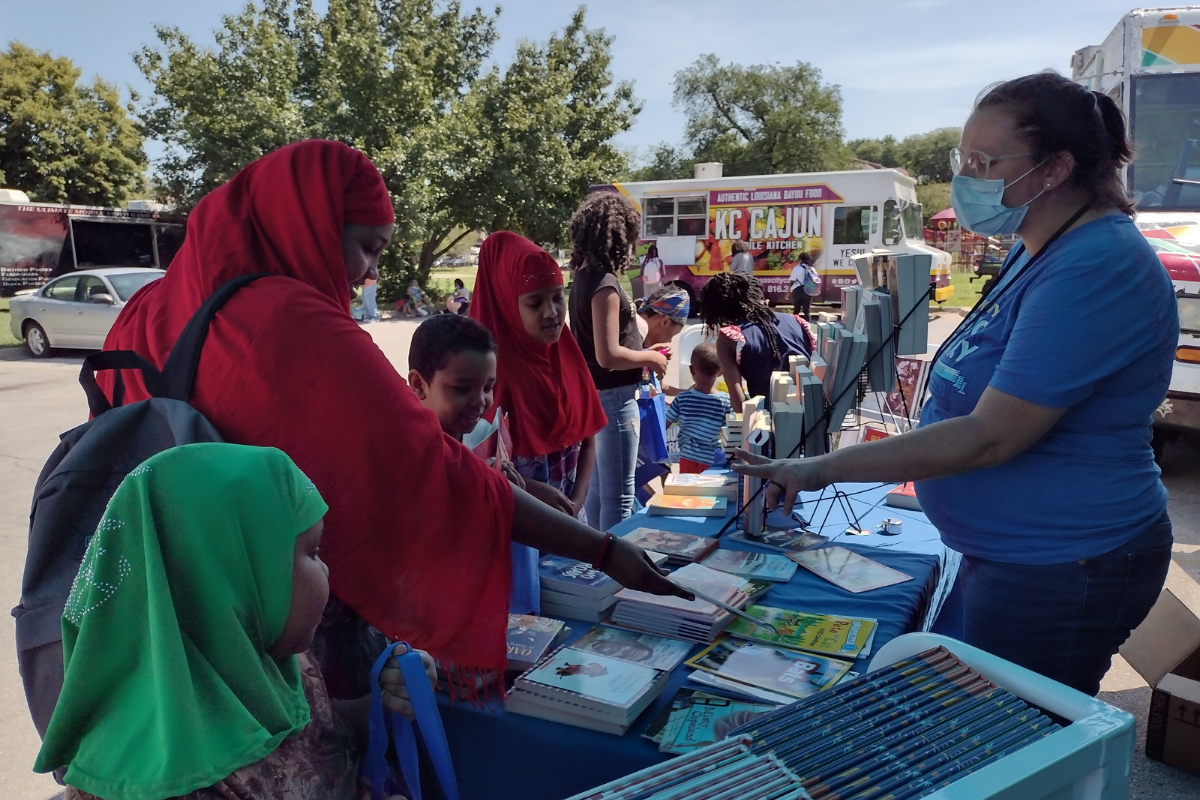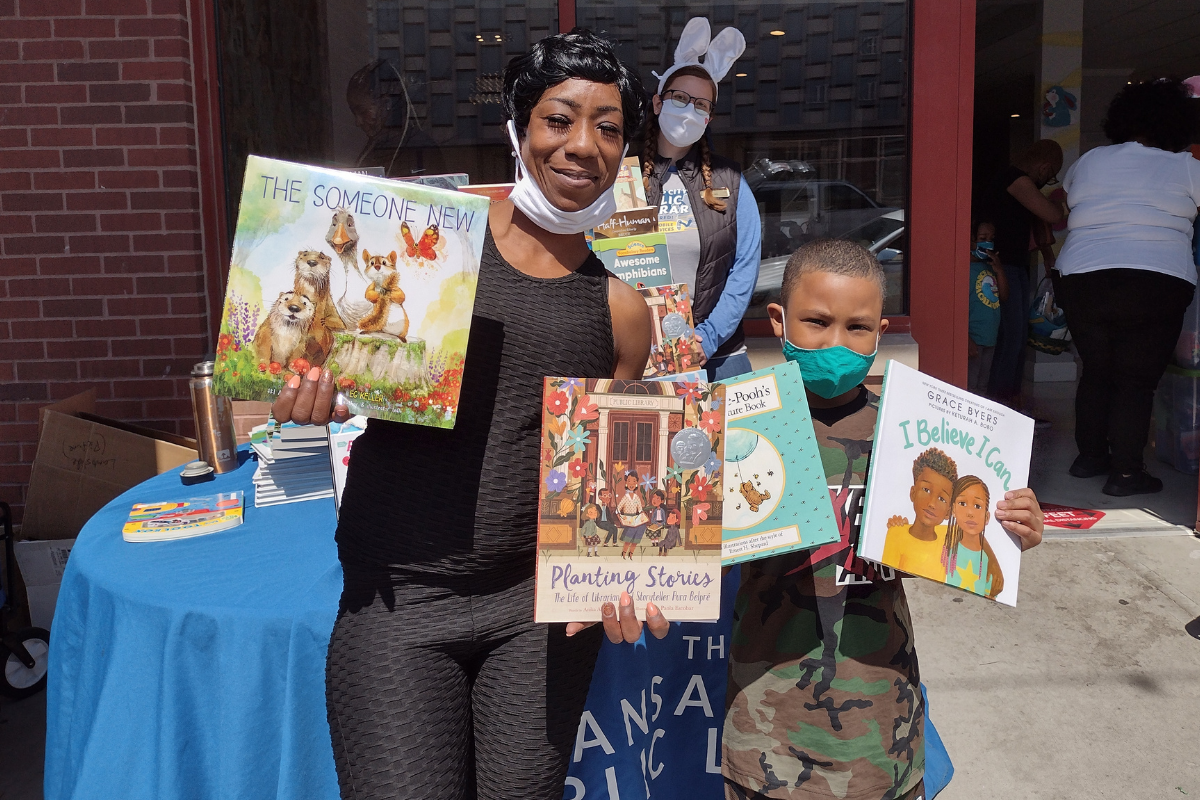All Library locations will open late Friday, February 27 at 11 a.m. due to an all staff meeting.
This article originally appeared on the website of the Urban Libraries Council.
In spring of 2020, the Kansas City Public Library had just closed our 10 locations for an unknown length of time when we received our shipment of materials for the Book Rich Environment initiative, which brings books and other literacy tools to children and their families who live in HUD-assisted housing. At that point, the idea that 2020 would be a turning point in our relationship with the Housing Authority of Kansas City (HAKC) felt unlikely. Communication with partners initially ground to a halt as we struggled to make sense of the changes in our world and reimagine how we would maintain contact with our public housing communities during a global pandemic. However, the relationship we went on to build with families in public housing now is the strongest we’ve ever had thanks to overlapping community partnerships, strong connections with HAKC caseworkers and opportunities to grow pilot programs into sustainable services.
Pandemic Brings Innovation
With our branches and HAKC community buildings closed, we approached partnership development by building layered relationships with the many exceptional organizations already serving families in our public housing communities. These partners range from institutions like schools and parks to social service providers like the Westside Community Action Network Center and Urban Community Connections. They include the Boys & Girls Clubs, Big Brothers Big Sisters and other after school and mentoring programs; healthcare providers; and even sports programs. Particularly in the early days of the pandemic, our collaboration centered on essential services – like distributing books in conjunction with door-to-door meal delivery at public housing communities – and tabling at drive-thru events.
And like many libraries, we looked to our city’s outdoor spaces as we reimagined our Summer Reading Program. This led to the development of Pop In at the Park, with pop-up booths in 14 neighborhood parks — prioritizing locations close to public housing communities — to provide Summer Reading Program activities with safe social distancing. Since then, this program has grown to include such partners as Kansas City Public Schools and Harvesters (our local food bank) and incorporate additional Library departments and services (e.g., voter registration). And it has become a sustained component of our Summer Reading Program.

The Library visited an ice cream social at Rose Hill Townhomes.
Partnerships also enhanced our ability to connect with families that we otherwise would have had the hardest time reaching. For instance, a soccer program for recently resettled refugee youth invited us to distribute books at its tournaments in the summer of 2020. The relationship with that program has since grown to include the provision of Wi-Fi hotspots for students, bringing our bookmobile to their homes, and leading STEAM programs at their summer camps.
By creating varied points of connection between the Library and families in public housing communities, we have more opportunities to share a range of Library services and imagine new ones. This in turn creates a broader understanding among our partners and in our community of what the Library can offer and how we can work together.

Clymer Community Center's back to school bash.
Progress vs. Perfection
Among the key lessons we’ve learned over the course of the past two years are the value of progress rather than perfection and the potential for temporary services to lay the groundwork for long-term collaboration. In 2020, the Library was in the process of obtaining its first bookmobile in more than 50 years. However, it wasn’t available yet when Kansas City Public Schools began offering its daily “Meals on the Bus” deliveries for students at their neighborhood bus stops. We imagined a connected program called “Books on the Bus”— an admittedly optimistic name since all we had at the time was a van with a $25 wire display rack in the back. We accompanied the school buses on their daily routes for four months to distribute books and activity kits at all our public housing communities, which helped set the stage for the later introduction of our full-fledged bookmobile.
We’re now working with HAKC caseworkers to establish monthly bookmobile stops, an evolution from a very transitional, informal program to a robust, sustainable service.

Urban Community Connections' spring family resource fair.
We continue to approach all book distribution through a lens of relationship building, with the overarching aim of creating durable connectedness with Housing Authority communities. For us, the value of the book distributions is the way in which they open the door to a deeper relationship with partners, staff and families. In providing high-quality, no-cost books in unexpected, convenient settings with assistance from community partners, we convey to families that the Library and the Housing Authority prioritize their access to resources and value their homes as their children’s first and most important learning environment.
The structure of our Book Rich Environment partnerships has evolved over time from an emergency-response and book-distribution focus to a sustained effort to bring a variety of Library services directly to public housing communities. This shift wouldn’t have been possible without our incredible partners or the HAKC caseworkers, with their deep knowledge of the families they serve and strong commitment to integrating the Library as a key partner in HAKC activities. As a result, we have slowly moved beyond book giveaways on the periphery of HAKC locations to planned joint family learning events, recurring bookmobile stops and connected outreach with other Library specialists and departments. We view the Library and the Housing Authority as a team, and we’re more excited than ever for what the future has to offer.
by Elizabeth Giles, Outreach Youth Librarian